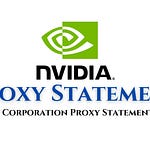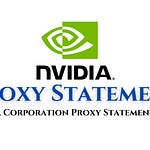Berkshire Hathaway Inc. 2021 Shareholder Letter: Key Themes and Ideas
Source: Berkshire Hathaway 2021 Shareholder Letter
This briefing document summarizes the main themes and important ideas presented in the excerpts from Warren Buffett's 2021 letter to Berkshire Hathaway shareholders. The letter provides insight into Berkshire's performance, investment philosophy, and the nature of its businesses.
I. Berkshire's Performance and Long-Term Philosophy:
Exceptional Long-Term Performance: The provided table vividly demonstrates Berkshire Hathaway's remarkable historical performance compared to the S&P 500. From 1965 to 2021, Berkshire's per-share market value had a compounded annual gain of 20.1%, significantly outperforming the S&P 500's 10.5%. The overall gain over the same period is staggering: Berkshire achieved 3,641,613% versus the S&P 500's 30,209%. This data underscores the sustained value creation achieved by Berkshire over decades.
Focus on Intrinsic Value: Buffett states that his primary duty for 57 years has been to "increas[e] the intrinsic value of your shares." This highlights the long-term, value-oriented approach that defines Berkshire's investment strategy.
Business Pickers, Not Stock Pickers: A crucial point emphasized is their investment philosophy: "Charlie and I are not stock-pickers; we are business-pickers." This means they invest in companies based on their expectations about the long-term performance and durable economic advantages of the underlying businesses, rather than attempting to time market movements.
Transparency and Shareholder Equality: Berkshire maintains a policy of treating all shareholders equally and avoids discussions with analysts or large institutions. Important communications are released on Saturday mornings to allow sufficient time for review before markets open.
II. What Berkshire Owns: A Diverse Collection of Businesses:
Meaningful Investments with Durable Economic Advantages and First-Class CEOs: The goal is to hold significant stakes in companies possessing these two key characteristics.
Acknowledging Mistakes: Buffett acknowledges making mistakes, leading to a portfolio that includes businesses with varying economic characteristics, from truly extraordinary to marginal.
Publicly Traded vs. Wholly-Owned: Berkshire owns a mix of wholly-owned businesses and significant stakes in publicly traded companies. Buying pieces of wonderful businesses at wonderful prices in the marketable arena is described as a rare but easier way to acquire great assets and exit from mistakes.
Infrastructure Supremacy: A surprising fact highlighted is that "Berkshire owns and operates more U.S.-based “infrastructure” assets – classified on our balance sheet as property, plant and equipment – than are owned and operated by any other American corporation." At yearend 2021, these assets were valued at $158 billion and are expected to continue increasing.
Significant Federal Income Tax Contributor: Berkshire pays substantial federal income taxes. In 2021, they paid $3.3 billion, representing a meaningful portion of the total corporate income-tax receipts for the U.S. Treasury. This is contrasted with the company's minimal tax payments in its early, struggling years.
Partnership with Government: Buffett highlights the "invisible and often unrecognized financial partnership between government and American businesses." He explicitly states, "Our country would have done splendidly in the years since 1965 without Berkshire. Absent our American home, however, Berkshire would never have come close to becoming what it is today. When you see the flag, say thanks."
III. Key Components of Berkshire's Value:
Insurance Float: Berkshire is the world leader in insurance "float," which represents money held from premiums that does not belong to the company but can be invested. This float has grown from $19 million to $147 billion.
Cost of Float: So far, this float has cost "less than nothing," meaning underwriting activities have generated a modest profit over the years, despite some years with underwriting losses.
Stickiness of Float: Float is described as "very sticky," allowing for long-term investment strategies.
Float's Impact on Value: The increase in float, such as the $9 billion increase in 2021, is important to owners even though it isn't reflected in GAAP earnings or net worth.
Ajit Jain's Contribution: The hiring of Ajit Jain in 1986, despite his initial lack of insurance experience, is cited as "extraordinary luck" and a key factor in Berkshire's insurance success.
Catastrophe Handling: Berkshire is built to handle catastrophic events in the insurance sector like no other insurer.
IV. Berkshire's "Big Four" Giants:
The Four Largest Holdings: These businesses account for a very large chunk of Berkshire's value.
Insurers: Berkshire owns 100% of this group, benefiting from the massive float and invested capital. The insurance business is seen as ideal for Berkshire due to its non-obsolete nature, growth potential, and importance of integrity and capital. Replication is considered almost impossible.
Apple: As the runner-up Giant by market value, Berkshire owns a 5.55% stake. The increase in ownership from 5.39% is attributed to Apple's share repurchases, which effectively increase Berkshire's stake without additional investment. While GAAP earnings only reflect dividends received ($785 million in 2021), Berkshire's share of Apple's earnings was a staggering $5.6 billion. Tim Cook is praised for his management.
BNSF: Described as the "number one artery of American commerce" and an indispensable asset. BNSF had record earnings of $6 billion in 2021 (calculated using "old-fashioned" earnings after all expenses). Its operations far exceed those of other American carriers and contribute to lower carbon emissions compared to truck transport.
BHE (Berkshire Hathaway Energy): Earned a record $4 billion in 2021, a significant increase from $122 million in 2000. Berkshire owns 91.1% of BHE. The company has transformed from a minor participant to a powerhouse and a leading force in wind, solar, and transmission across the U.S. BHE's efforts are described as genuine climate-conscious moves, not "green-washing."
V. Investment Portfolio and Capital Allocation:
Top Equity Holdings: A table lists Berkshire's fifteen largest equity holdings, including Apple, Bank of America, American Express, Coca-Cola, and others.
Todd Combs and Ted Weschler: Berkshire's two investment managers have total authority over $34 billion in investments, some of which are not included in the top holdings table.
Other Significant Holdings: Beyond marketable securities, Berkshire holds a 26.6% interest in Kraft Heinz and a 38.6% interest in Pilot Corp., which will increase to 80% in early 2023, leading to full consolidation.
Substantial Cash Holdings: Berkshire holds $144 billion in cash and cash equivalents (excluding BNSF and BHE), with $120 billion in short-term U.S. Treasury bills. This represents about 1/2 of 1% of the publicly-held national debt.
Maintaining Financial Impregnability: The pledge to hold more than $30 billion in cash and equivalents ensures the company is "financially impregnable and never dependent on the kindness of strangers." This priority is driven by a desire for sound sleep for all stakeholders.
Preference for Business Ownership: Despite the large cash position, Buffett and Munger maintain an "overwhelming preference for business ownership" and ideally would have 100% of their net worth in equities. The current cash-heavy position is a result of the difficulty in finding acquisition or marketable stock opportunities that meet their criteria at attractive prices.
Impact of Low Interest Rates: Low long-term interest rates are noted as pushing up the prices of all productive investments, making attractive opportunities scarcer.
VI. Share Repurchases as a Value Creation Tool:
Three Ways to Increase Value: Internal growth, acquisitions, and share repurchases.
Repurchases When Price/Value is Right: Share repurchases are seen as the "easiest and most certain way" to increase shareholder wealth when the price/value equation is favorable.
Recent Repurchase Activity: In the past two years (2020 and 2021), Berkshire repurchased 9% of outstanding shares at a cost of $51.7 billion, increasing continuing shareholders' ownership by about 10%. An additional $1.2 billion in repurchases occurred in early 2022.
Price-Dependent Appetite: The appetite for repurchases remains large but is always price-dependent.
High-Class Investor Base Limitation: Berkshire's investor base, characterized by "admirable buy-and-keep attitudes," limits the opportunities for opportunistic repurchases, though this is seen as a positive.
Float Increase from Repurchases: Repurchases automatically increase the "float" per share, a significant gain not reflected in GAAP earnings.
VII. Anecdotal Insights and Appreciation:
The Story of Paul Andrews and TTI: The acquisition of TTI and its founder, Paul Andrews, is recounted as an example of finding a wonderful man and a wonderful business. Paul's priority of his employees over maximizing financial gain through selling to a competitor or a financial buyer led him to choose Berkshire. This acquisition, facilitated by a mutual friend, also serendipitously led to the acquisition of BNSF.
Teaching and Learning: Buffett reflects on his experience teaching investing, noting that explaining ideas helps clarify his own thinking (the "orangutan effect").
Advice to Students: The advice given to university students is to seek employment in fields and with people they would choose even if money wasn't a necessity. Finding such a job means they will no longer be "working."
Joy of Working for Shareholders: Buffett expresses deep satisfaction in working for long-term individual shareholders who trust Berkshire as a reliable custodian of their funds. He acknowledges that while some shareholders are short-term speculators or index funds, a large core of owners have a "til death do us part" intention and prioritize comfort with their investment.
VIII. Annual Meeting Information:
Upcoming Event: The annual meeting is scheduled for Friday, April 29th through Sunday, May 1st in Omaha.
Special Offer: A pontoon "party" boat designed by "Cousin" Jimmy Buffett and manufactured by a Berkshire subsidiary will be introduced at the meeting and available for purchase by shareholders at a 10% discount for two days.
In conclusion, the 2021 letter reinforces Berkshire Hathaway's enduring success built on a foundation of long-term value investing, a diverse portfolio of strong businesses, prudent capital allocation (including strategic share repurchases), and a deep appreciation for its long-term shareholders. The anecdotes about TTI and BNSF highlight the unexpected paths to significant acquisitions and the importance of relationships and alignment of values.














Share this post